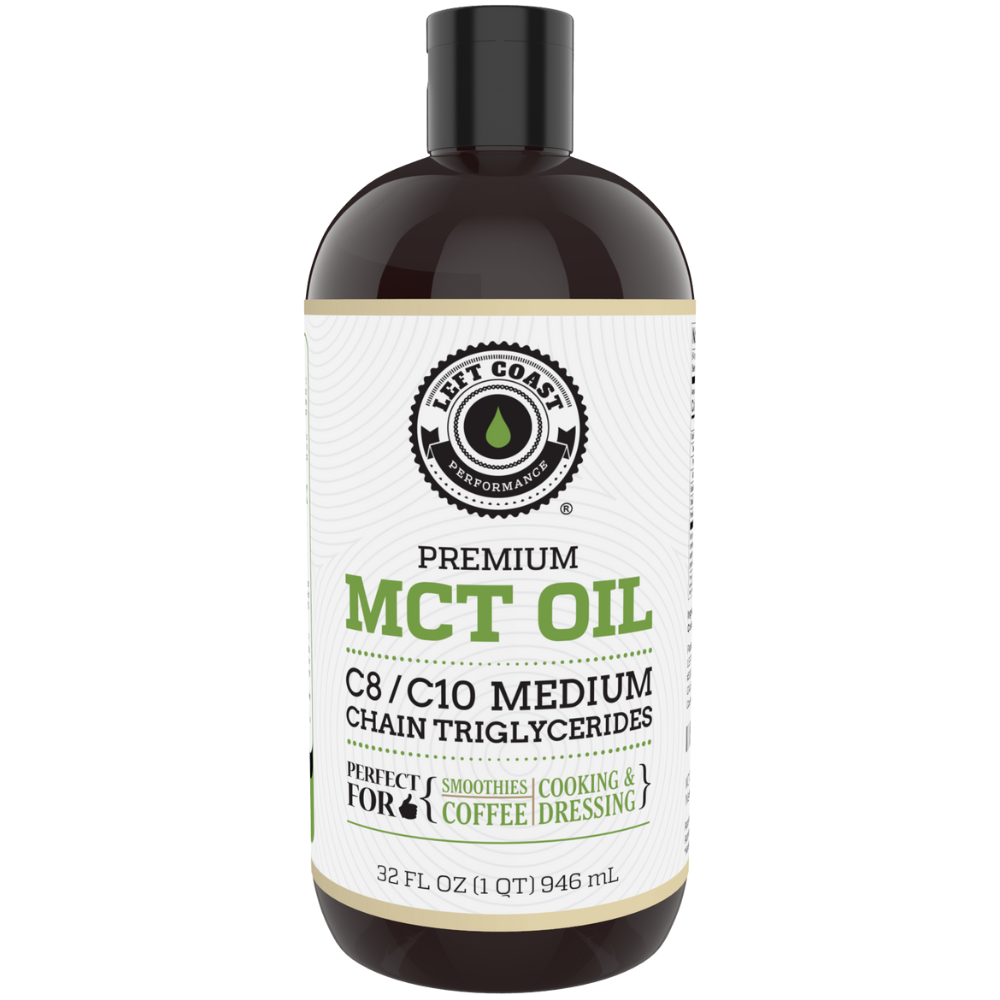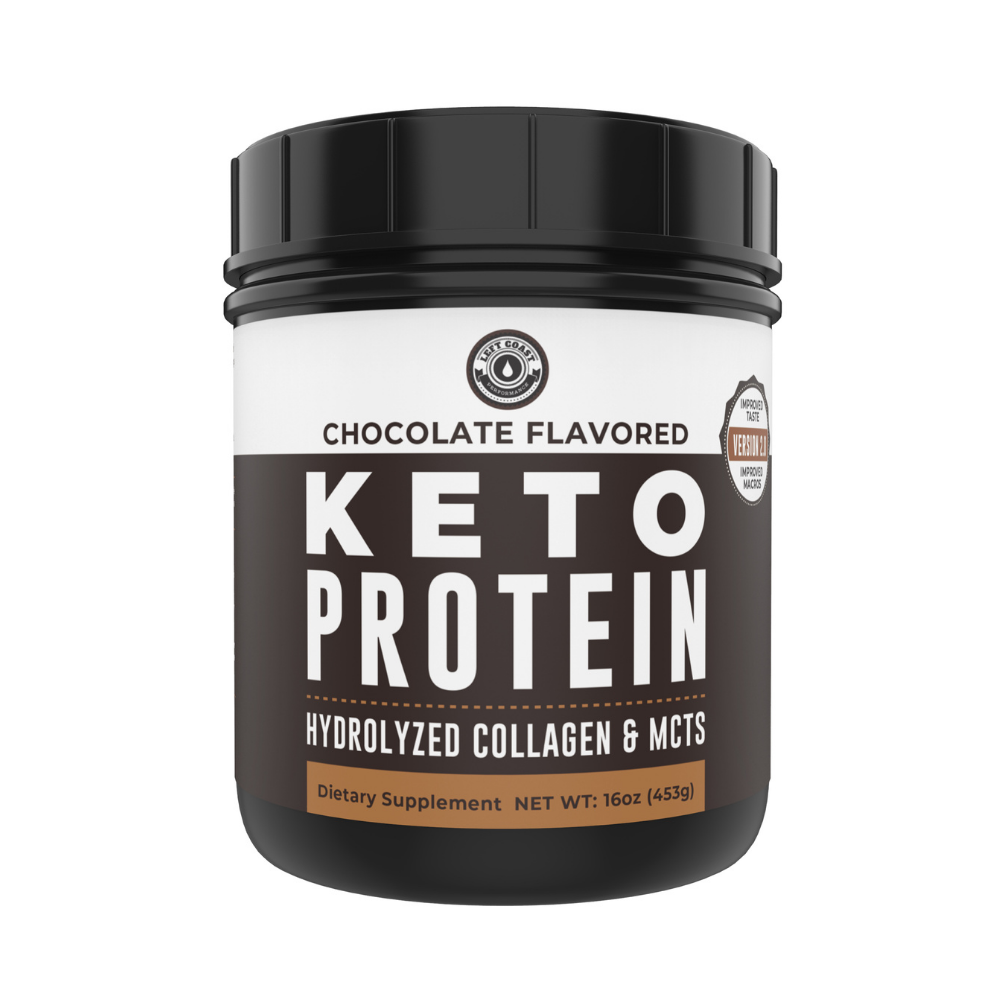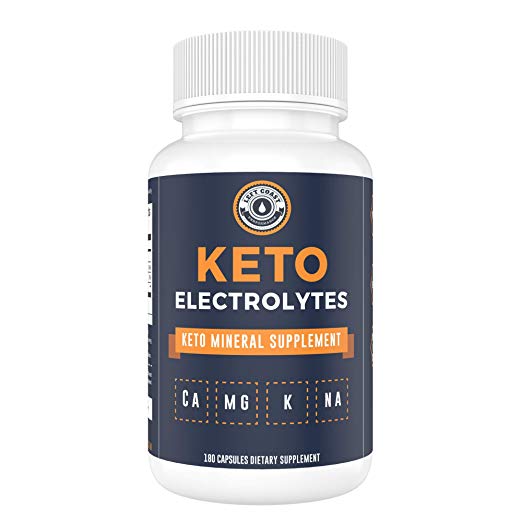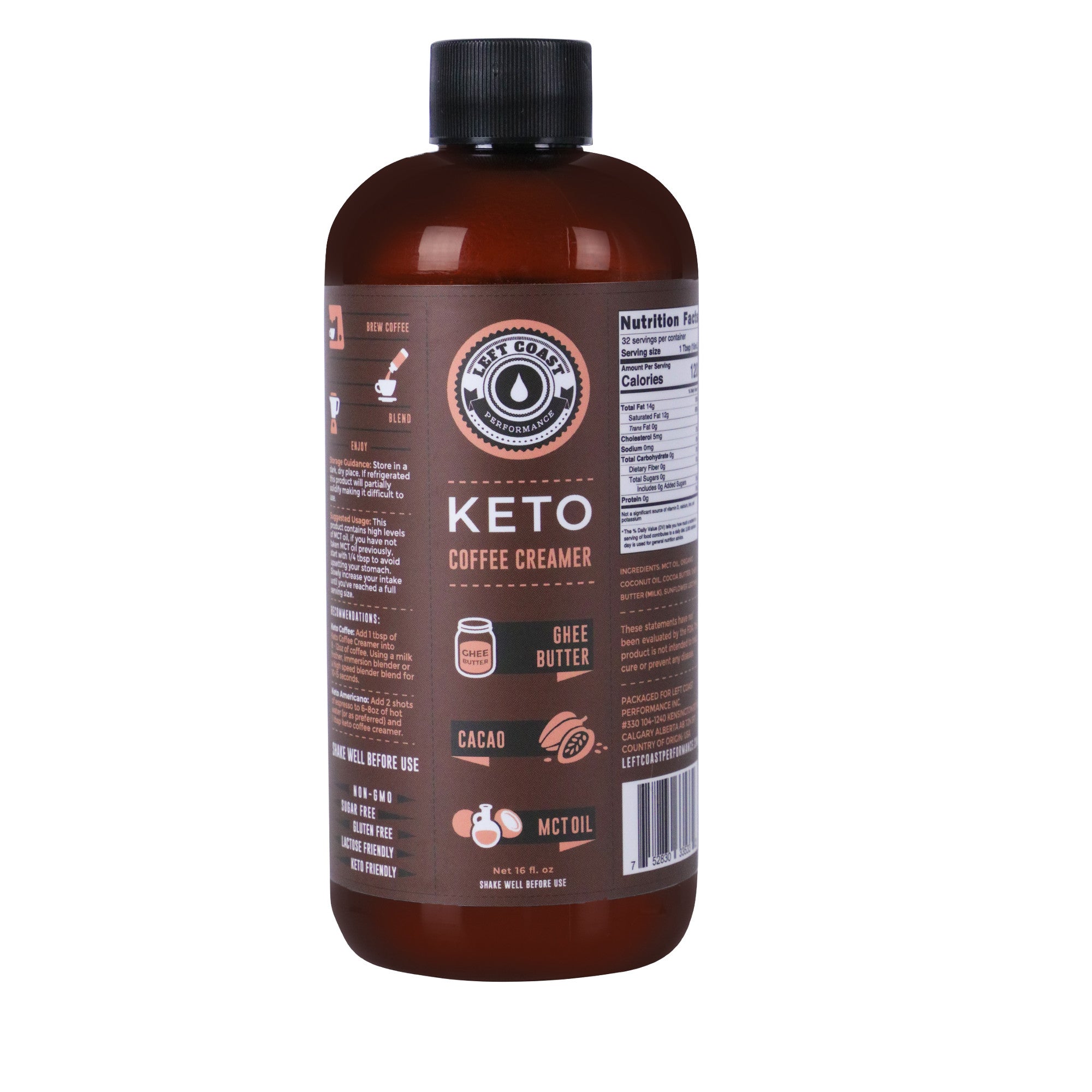Is Erythritol Keto? How To Use This Sweetener on a Low Carb Diet
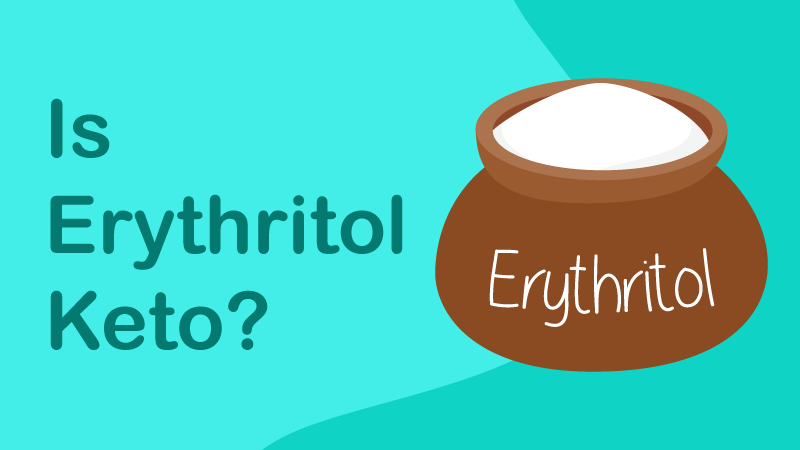
on November 15, 2019
If the idea of giving up sugar has scared you off from trying a ketogenic diet, we’ve got some good news: You don’t need to abstain from sweets altogether — it just takes a little creativity. A sweetener called erythritol may be a valuable tool to add to your low-carb arsenal.
Over time, a keto diet will help curb your most intense cravings, but cutting out sugars and carbs can be especially challenging at first.
Fortunately, there are keto-friendly sugar alternatives available that are low in both calories and carbs, allowing you to indulge in an array of keto treats and desserts without the guilt.
Erythritol, is a zero-calorie and zero-carb natural sweetener and in general Erythritol can be used while following a keto diet.
In this article, we’ll take a look at what erythritol is, its potential benefits, side effects, why it may not be right for everyone and easy ways to incorporate it into your keto diet.
What Is Erythritol?
Erythritol is considered a sugar alcohol or polyol. While it's neither sugar nor alcohol, its chemical structure is similar to both.
Other sugar alcohols include sorbitol, xylitol, mannitol, lactitol, and maltitol (when reading food labels, notice the -tol suffix). These sweeteners occur naturally in small amounts in various fruits and vegetables, including pears, mushrooms, and grapes, as well as fermented foods like soy sauce. Still, most sweeteners are produced for commercial use by fermenting other carbohydrates such as glucose or fructose, often derived from corn.
Compared to regular types of sugars and syrups, sugar alcohols contain fewer calories and require less insulin when absorbed in the body.
In healthy individuals, erythritol won't affect blood sugar levels like regular sugar does. However, each type of sugar alcohol has a slightly different structure, altering its taste and sweetness level, as well as how it behaves in the body.
Erythritol, in particular, was discovered in 1848 but didn't make it onto consumer shelves until 1990 when it introduced to the Japanese market.
It's since found in products touting "no sugar added," "reduced sugar," or "sugar-free." You can find it in candies, chocolates, beverages, chewing gum, toothpaste, and mouthwash. Erythritol is not only used for flavor, but it's often added to add bulk and texture to certain foods.
For baking and cooking purposes, erythritol is available in granulated and powdered form. It's the central ingredient alongside stevia leaf extract in the popular sweetener brand Truvia. A distinct characteristic of erythritol is its cooling sensation on the tongue.
How Does Erythritol Have Zero Calories and Zero Carbs?
Erythritol touts having zero calories and zero carbs, even though it technically contains both. Again, this comes down to how it’s absorbed in the body.
Calories: As mentioned above, the calorie count is negligible. Erythritol offers so few calories (0.24 calories per gram), manufacturers in Europe and Japan don’t even count them, and it’s often marketed as a zero-calorie sweetener.
Carbs: Erythritol technically contains 4 grams of carbs per teaspoon. However, you can consider erythritol as a fiber because it passes through the body undigested.
So you can subtract its carb count from your carbohydrate count, resulting in erythritol having zero net carbs.
Simply put, adding erythritol to your keto diet will not affect your overall calorie or carb count.
Does Erythritol Spike Blood Sugar and Insulin Levels?
When consumed, the majority of erythritol is quickly absorbed in the small intestine. This process requires no insulin and has no impact on your blood sugar levels. A study conducted in Japan in 1994 found that erythritol did not affect glucose or insulin levels, as well as cholesterol, triglycerides, or electrolyte levels.
Taking erythritol may help lower blood sugar levels in the body. Researchers have concluded that erythritol could be a useful supplement for managing high blood sugar, particularly for those with type 2 diabetes.
Is Erythritol Safe for Keto Dieters?
Given that erythritol has virtually no calories, no net carbs, and does not spike blood sugar or insulin levels, it's an excellent sugar-free sweetener for most people on a keto diet.
Notice we say most — each individual may react differently to erythritol, as with any food.
Testing your ketone levels is the best way to find out if erythritol is safe for your keto diet.
Test your current ketone levels to make sure you're in ketosis. Wait about 30 minutes after ingesting a teaspoon of erythritol in tea or coffee and test again.
Measure your ketones via a ketone test strip, ketone breath meter or, blood glucose meter — the latter will offer the most accurate measurements. Test again 2 hours later.
Make sure you don't eat anything else in that window of testing.
Why Erythritol is a Better Sweetener Compared to Sugar
Because the ketogenic diet is highly restrictive, a sweet treat from time to time can help keep you motivated to stay on track of your diet — as long as you're careful to use the right low-carb sweetener and treat yourself in moderation.
Of all sugar replacement options available, erythritol is the best keto-friendly option for several reasons, with minimal to no side effects.
There are, in fact, several health benefits to reaching for erythritol over sugar.
Low Calorie
Erythritol has the smallest molecular weight with only four carbon atoms and the fewest amount of calories — only 0.2 calories per gram. It offers about 60 - 80% the sweetness of sucrose (table sugar) and has no aftertaste.
Low Glycemic Index
Erythritol has a glycemic index of 0 out of 100 (as opposed to sucrose at 65). This means erythritol has no effect on your blood glucose levels, and, presumably, will have no negative impact on a body in ketosis.
Indeed, studies have found that erythritol does very little to the body when consumed. Similar to dietary fiber, it's not broken down and digested. Most of it is absorbed in the bloodstream, with about 90% of erythritol excreted in the urine within 48 hours and only 10% entering the colon.
Good for Your Teeth
As opposed to sugar, which has long been linked to cavities and tooth decay, all sugar alcohols are surprisingly good for your oral health. Since they don't react with bacteria in the mouth, they don't cause tooth decay. It's why you'll find them in products like toothpaste, candy, and sugar-free gum, and ice-cream. Still, some sugar alcohols offer better benefits than others.
Erythritol can reduce dental plaque and the risk of tooth decay, and it's been proven to be more effective for maintaining and improving oral health compared to sorbitol and xylitol.
May Lower Risk of Cardiovascular Disease
Erythritol has been shown to work as an antioxidant and free radical scavenger, at least in animal studies. Researchers concluded that this could help protect against blood vessel damage caused by high blood sugar levels — often found in individuals with type 2 diabetes.
Similar findings were discovered within a small population of adults with type 2 diabetes in this study. After taking 36 grams of erythritol daily for four weeks, participants experienced improved function in the arteries and reduced stiffness, potentially reducing their risk of cardiovascular disease.
Potential To Reduce Appetite
Erythritol may help you feel fuller for an extended amount of time, another way that it acts similar to fiber. It can slow gastric emptying (the amount of time it takes for food to empty from the stomach), which could potentially reduce your hunger and appetite. That said, both studies referenced didn't find a significant change in participants' hunger and satiety scores when consuming erythritol, so this connection needs to be further investigated.
Erythritol Side Effects
Most sugar alcohols have one significant downside: they can cause digestive upset, including bloating, gas, and diarrhea. Erythritol doesn't have these same side effects — at least to the same degree.
Compared with other sugar alcohols, such as xylitol and sorbitol, erythritol causes few digestive symptoms due to its small molecular weight. Since only a tiny percentage of erythritol makes it to the colon (as little as 10%), it's not fermented in the gut like other sugar alcohols. This fermentation process is what creates gas and bloating. Because of this, anyone on a low-FODMAP diet should avoid all sugar alcohols — except for erythritol.
Still, high doses of erythritol may cause stomach discomfort, cramps, nausea, bloating, or gas. It may also increase water in the intestines, producing softer stools or a laxative effect — though this risk is much lower compared to sucralose-based sweeteners such as the popular Splenda.
Aside from these minor digestive side effects, erythritol could have a greater negative impact on the waistline of young adults. High erythritol levels were linked with weight and fat gain in freshman college students, though it's not clear if that's a direct connection. There could be other major factors involved, like the large amounts of sweets consumed.
In general, there isn't a standard recommended daily dose of erythritol to avoid such side effects, but a few studies have attempted to reach a specific number. A study from 1996 concluded that erythritol consumption of 1 gram per kilogram (0.45 g/lbs) of body weight per day is well-tolerated for healthy individuals. For a 150 lbs person, that would be about 68 grams of erythritol (or approximately 17 teaspoons).
However, in 2007, the European Journal of Clinical Nutrition found that consuming 35 - 50 grams (8.75 - 12.5 teaspoons) of erythritol is safe. Either way, this amount is still likely more than you'll be consuming, especially on a keto diet plan. Just because it's virtually free of calories and carbs doesn't mean you should binge on this sweetener.
How To Use Erythritol
Erythritol has a naturally sweet taste and can be substituted for white sugar, brown sugar, and powdered sugar in most recipes.
Just remember that when adding erythritol to any homemade keto recipe, it has a sweetness level of 60 - 80% of sucrose. This equates to about 260 grams (1-⅓ cups) for any recipe calling for 200 grams (1 cup) of sugar.
Shopping for Erythritol
Erythritol is available in powdered and granulated form online and in the baking section at most grocery stores.
The powdered version contains finer crystals and dissolves more quickly than the coarser granulated crystals. For this reason, the powder version is best for adding to beverages, shakes, or smoothies, while granulated is better for baking.
Several brands offer blends of erythritol like Swerve that contain other keto-friendly sweeteners such as stevia or Luo Han Guo. a.k.a monk fruit, which is a natural sweetener.
Choosing a blend like this can help mitigate the “cooling” effect of erythritol and give you a more sugar-like feel on the tongue.
Baking with Erythritol
Granulated erythritol is excellent for baking and is popular with paleo and keto bakers alike. Keep in mind that erythritol doesn’t dissolve as well as sugar and creates a slightly gritty or crunchy texture.
It doesn’t caramelize like sugar either, so your baked goods won’t come out as soft or chewy and may end up dry if you use too much erythritol.
Yet another drawback is that erythritol tends to burn more quickly than other types of sugars and sweeteners. To avoid this, you may want to cut your erythritol measurement in half (try ½ cup to 1 cup of sugar). If you want more sweetness, add up to a teaspoon of stevia or try a teaspoon of vanilla extract.
Adding Erythritol to Beverages, Sauces, & Other Keto Foods
Powdered erythritol is your best bet for adding a touch of sweetness to beverages or sauce recipes since it dissolves more easily.
Mix it into yogurt, smoothies, protein shakes, home-made ketchup, or salad dressings.
The Verdict: Erythritol is an Excellent Keto Sweetener
Erythritol is our most recommended natural sugar substitute to use on a keto diet.
It's virtually calorie-free, has no net carbs, and won't raise blood sugar levels. On top of that, most healthy individuals will experience little to no side effects directly from erythritol.
Of course, moderation is still key. You should limit your intake of erythritol, especially when first starting on a low-carb diet.
If one of your main goals is to curb cravings — especially when it comes to sugar — continuing to please your sweet tooth with any sweetener may set you back on the path to weight gain. We recommend using erythritol sparingly and more like a treat than an everyday keto necessity.





